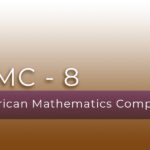International Mathematical Olympiad – IMO 1973 Problems
Problem 1
Point $O$ lies on line $g$; $\overrightarrow{OP_1}, \overrightarrow{OP_2}, \ldots, \overrightarrow{OP_n}$ are unit vectors such that points $P_1, P_2, \ldots, P_n$ all lie in a plane containing $g$ and on one side of $g$. Prove that if $n$ is odd,\[\left\vert \overrightarrow{OP_1} + \overrightarrow{OP_2} + \ldots + \overrightarrow{OP_n} \right\vert \geq 1\]Here $\left\vert \overrightarrow{OM} \right\vert$ denotes the length of vector $\overrightarrow{OM}$.
Problem 2
Determine whether or not there exists a finite set $M$ of points in space not lying in the same plane such that, for any two points $A$ and $B$ of $M$, one can select two other points $C$ and $D$ of $M$ so that lines $AB$ and $CD$ are parallel and not coincident.
Problem 3
Let $a$ and $b$ be real numbers for which the equation\[x^4 + ax^3 + bx^2 + ax + 1 = 0\]has at least one real solution. For all such pairs $(a, b)$, find the minimum value of $a^2 + b^2$.
Problem 4
A soldier needs to check on the presence of mines in a region having the shape of an equilateral triangle. The radius of action of his detector is equal to half the altitude of the triangle. The soldier leaves from one vertex of the triangle. What path should he follow in order to travel the least possible distance and still accomplish his mission?
Problem 5
$G$ is a set of non-constant functions of the real variable $x$ of the form\[f(x) = ax + b, a \text{ and } b \text{ are real numbers,}\]and $G$ has the following properties:
(a) If $f$ and $g$ are in $G$, then $g \circ f$ is in $G$; here $(g \circ f)(x) = g[f(x)]$.
(b) If $f$ is in $G$, then its inverse $f^{-1}$ is in $G$; here the inverse of $f(x) = ax + b$ is $f^{-1}(x) = (x – b) / a$.
(c) For every $f$ in $G$, there exists a real number $x_f$ such that $f(x_f) = x_f$.
Prove that there exists a real number $k$ such that $f(k) = k$ for all $f$ in $G$.
Problem 6
Let $a_1, a_2, \ldots, a_n$ be $n$ positive numbers, and let $q$ be a given real number such that $0 < q < 1$. Find $n$ numbers $b_1, b_2, \ldots, b_n$ for which
(a) $a_k < b_k$ for $k = 1, 2, \ldots, n$,
(b) $q < \tfrac{b_{k+1}}{b_k} < \tfrac {1}{q}$ for $k = 1, 2, \ldots, n – 1$,
(c) $b_1 + b_2 + \cdots + b_n < \tfrac{1 + q}{1 – q} (a_1 + a_2 + \cdots + a_n)$.




